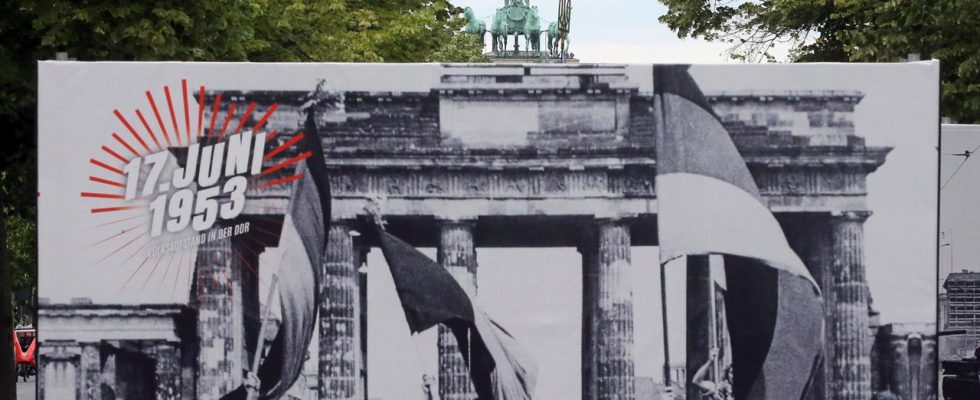On the 70th anniversary of the East German uprising of June 17, 1953, the courage of the demonstrators and the victims are remembered. Chancellor Scholz and President Steinmeier lay wreaths in Berlin.
The popular uprising in the GDR on June 17, 1953 is commemorated in many places in the country. At the central commemoration in Berlin, Federal Chancellor Olaf Scholz, Federal President Frank-Walter Steinmeier and Governing Mayor Kai Wegner lay wreaths at the memorial for the victims in the Seestrasse cemetery.
There are also events at other historical locations, including the site of the popular uprising of 1953 at today’s Federal Ministry of Finance. Protesting workers had moved there at the time.
55 people were killed
On June 17, 1953, around a million people took to the streets in 700 locations in the GDR. They demonstrated against higher labor standards, but also for more prosperity, free elections and an end to the division of Germany.
The Soviet occupying power put down the protests together with the GDR authorities. At least 55 people were killed.
Steinmeier appreciates protests
Yesterday, the Bundestag commemorated the GDR popular uprising. Federal President Steinmeier paid tribute to the protesters’ courage and desire for freedom.
“What happened then was a mass uprising against the dictatorship. A referendum for democracy,” said Steinmeier. The people in the GDR fought “for a life in dignity in a united Germany”. “They were pioneers of today’s democracy! And to this day they are role models for the fight against injustice and oppression.”
Pictures
The failed East German uprising of June 17, 1953
Merz: “Rebellion with long-term effect”
CDU leader Friedrich Merz called the uprising important for a free Germany and a free Europe. “This revolution remained unfinished. But it was by no means in vain,” said Merz, who is also chairman of the Union faction in the Bundestag, on Friday at a commemoration event of the CDU-affiliated Konrad Adenauer Foundation in Berlin.
The uprising had a long-term effect “and became a constant trauma for the GDR rulers”. “The popular uprising of June 17, 1953 is one of the most important, depressing and bloody events in German post-war history,” said Merz.

